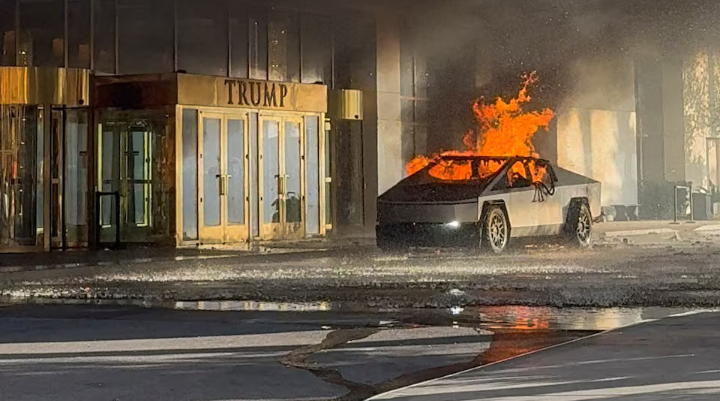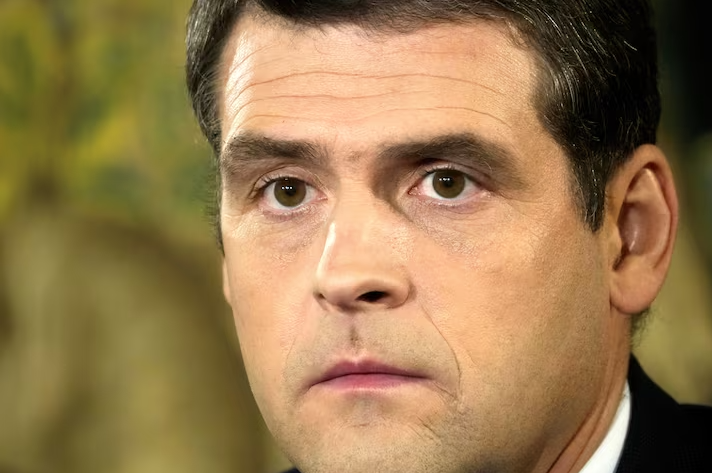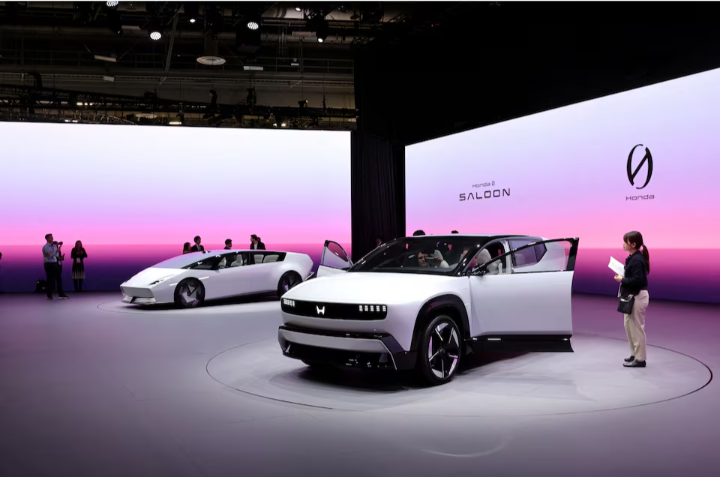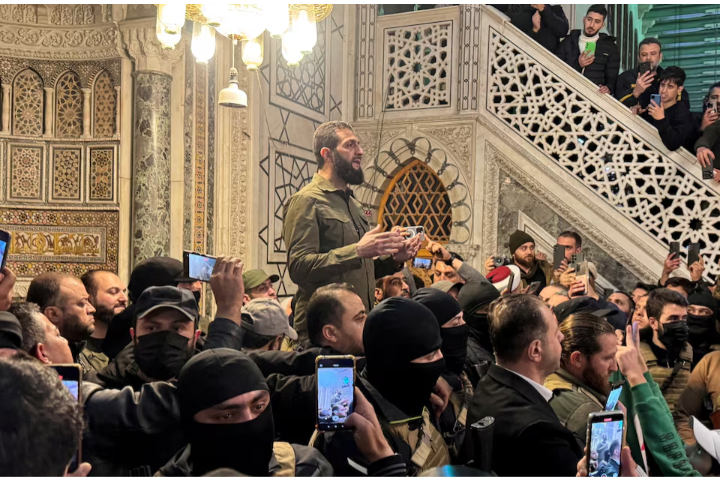A Tesla Cybertruck erupted in a massive explosion outside the Trump International Hotel in Las Vegas on January 1, 2025, killing the driver and injuring seven bystanders. The blast, which occurred around 8:39 a.m., caused significant damage to the hotel’s entrance, leading to the evacuation of guests. The scene quickly became chaotic as emergency services arrived to extinguish the fire and secure the area.
Authorities revealed that the Cybertruck, rented in Colorado via a car-sharing app, contained fireworks, gas tanks, and camping fuel, all wired to a detonation system. Tesla CEO Elon Musk confirmed the explosion was not due to a vehicle malfunction but was triggered by the hazardous materials stored in the truck bed. The incident has sparked debates over the security risks posed by electric vehicles and shared mobility platforms.
Federal investigators, including the FBI, are treating the explosion as a potential terrorist attack. Officials are probing links to an earlier car-ramming incident in New Orleans involving a vehicle rented through the same app. Both drivers reportedly had military backgrounds, though no direct connections between the incidents have been confirmed.
President Joe Biden called for a thorough investigation while urging the public to remain calm and avoid speculation. Meanwhile, the Trump Organization expressed gratitude to first responders and assured guests of their commitment to safety. The explosion has heightened concerns over the security of high-profile locations and the increasing use of unconventional methods in attacks.
As the investigation unfolds, Tesla announced it is cooperating fully with authorities and analyzing vehicle telemetry data to assist in uncovering more details. Law enforcement is focusing on the motives behind the attack and any broader implications for public safety, raising questions about potential vulnerabilities in electric vehicles and their misuse in criminal acts.





